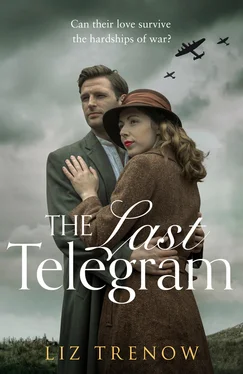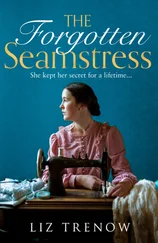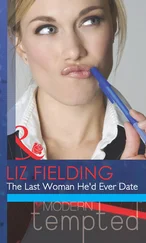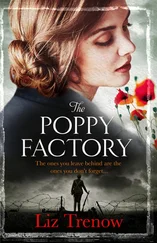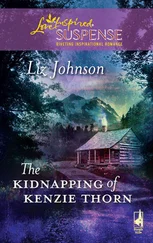‘He always used to ask me about stuff,’ she goes on. ‘He was always interested in what I was doing with myself. Not many grownups do that. A great listener.’
As usual my smart girl goes straight to the heart of it. It’s something I’m probably guilty of, not listening enough. ‘You can talk to me, now that he’s gone.’ I say, a bit too quickly. ‘Tell me what’s new.’
‘You really want to know?’
‘Yes, I really do,’ I say. Her legs, in heart-patterned black tights, seem to stretch for yards beyond her miniskirt and my heart swells with love for her, the way she gives me her undivided attention for these moments of proper talking time.
‘Have I told you I’m going to India?’ she says.
‘My goodness, how wonderful,’ I say. ‘How long for?’
‘Only a month,’ she says airily.
I’m achingly envious of her youth, her energy, her freedom. I wanted to travel too, at her age, but war got in the way. My thoughts start to wander until I remember my commitment to listening. ‘What are you going to do there?’
‘We’re going to an orphanage. In December, with a group from college. To dig the foundations for a cowshed,’ she says triumphantly. I’m puzzled, and distracted by the idea of elegant Emily wielding a shovel in the heat, her slender hands calloused and dirty, hair dulled by dust.
‘Why does an orphanage need a cowshed?’
‘So they can give the children fresh milk. It doesn’t get delivered to the doorstep like yours does, Gran,’ she says, reprovingly. ‘We’re raising money to buy the cows.’
‘How much do you need?’
‘About two thousand. Didn’t I tell you? I’m doing a sponsored parachute jump.’ The thought of my precious Emily hanging from a parachute harness makes me feel giddy, as if capsized by some great gust of wind. ‘Don’t worry, it’s perfectly safe,’ she says. ‘It’s with a professional jump company, all above board. I’ll show you.’
She returns with her handbag – an impractical affair covered in sequins – extracts a brochure and gives it to me. I pretend to read it, but the photographs of cheerful children preparing for their jumps seem to mock me and make me even more fearful. She takes the leaflet back. ‘You should know all about parachutes, Gran. You used to make them, Dad said.’
‘Well,’ I start tentatively, ‘weaving parachute silk was our contribution to the war effort. It kept us going when lots of other mills closed.’ I can picture the weaving shed as if from above, each loom with its wide white spread, shuttles clacking back and forth, the rolls of woven silk growing almost imperceptibly thicker with each turn of the weighted cloth beam.
‘But why did they use silk?’
‘It’s strong and light, packs into a small bag and unwraps quickly because it’s so slippery.’ My voice is steadying now and I can hear that old edge of pride. Silk seems still to be threaded through my veins. Even now I can smell its musty, nutty aroma, see the lustrous intensity of its colours – emerald, aquamarine, gold, crimson, purple – and recite the exotic names like a mantra: brigandine, bombazine, brocatelle, douppion, organzine, pongee, schappe.
She studies the leaflet again, peering through the long fringe that flops into her eyes. ‘It says here the parachutes we’re going to use are of high quality one-point-nine ounce, ripstop nylon. Why didn’t they use nylon in those days? Wouldn’t it have been cheaper?’
‘They hadn’t really invented nylon by then, not good enough for parachutes. You have to get it just right for parachutes,’ I say and then, with a shiver, those pitiless words slip into my head after all these years. Get it wrong and you’ve got dead pilots.
She rubs my arm gently with her fingertips to smooth down the little hairs, looking at me anxiously. ‘Are you cold, Gran?’
‘No, my lovely, it’s just the memories.’ I send up a silent prayer that she will never know the dreary fear of war, when all normal life is suspended, the impossible becomes ordinary, when every decision seems to be a matter of life or death, when goodbyes are often for good.
It tends to take the shine off you.
A little later Emily’s brother appears and loiters in his adolescent way, then comes and sits by me and holds my hand, in silence. I am touched to the core. Then her father comes in, looking weary. His filial duties complete, he hovers solicitously. ‘Is there any more we can do, Mum?’ I shake my head and mumble my gratitude for the nth time today.
‘We’ll probably be off in a few minutes. Sure you’ll be all right?’ he says. ‘We can stay a little longer if you like.’
Finally they are persuaded to go. Though I love their company I long for peace, to stop being the brave widow, release my rictus smile. I make a fresh pot of tea, and there on the kitchen table is the leaflet Emily has left, presumably to prompt my sponsorship. I hide it under the newspaper and pour the tea, but my trembling hands cause a minor storm in the teacup. I decant the tea into a mug and carry it with two hands to my favourite chair.
In the drawing room, I am relieved to find that the slide show has been turned off, the TV screen returned to its innocuous blackness. From the wide bay window looking westwards across the water meadows is an expanse of greenery and sky which always helps me to think more clearly.
The house is a fine, double-bayed Edwardian villa, built of mellow Suffolk bricks that look grey in the rain, but in sunlight take on the colour of golden honey. Not grand, just comfortable and well-proportioned, reflecting how my parents saw themselves, their place in the world. They built it on a piece of spare land next to the silk mill during a particularly prosperous period just after the Great War. ‘It’s silk umbrellas, satin facings and black mourning crepe we have to thank for this place,’ my father, always the merchant, would cheerfully and unselfconsciously inform visitors.
Stained-glass door panels throw kaleidoscope patterns of light into generous hallways, and the drawing room is sufficiently spacious to accommodate Mother’s baby grand as well as three chintz sofas clustered companionably around a handsome marble fireplace.
To the mill side of the house, when I was a child, was a walled kitchen garden, lush with aromatic fruit bushes and deep green salads. On the other side, an ancient orchard provided an autumn abundance of apples and pears, so much treasured during the long years of rationing, and a grass tennis court in which worm casts ensured such an unpredictable bounce of the ball that our games could never be too competitive. The parade of horse chestnut trees along its lower edge still bloom each May with ostentatious candelabra of flowers.
At the back of the house is the conservatory, restored after the doodlebug disaster but now much in need of repair. From the terrace, brick steps lead to a lawn that rolls out towards the water meadows. Through these meadows, yellow with cowslips in spring and buttercups in summer, meanders the river, lined with gnarled willows that appeared to my childhood eyes like processions of crook-backed witches. It is Constable country.
‘Will you look at this view?’ my mother would exclaim, stopping on the landing with a basket of laundry, resting it on the generous windowsill and stretching her back. ‘People pay hundreds of guineas for paintings of this, but we see it from our windows every day. Never forget, little Lily, how lucky you are to live here.’
No, Mother, I have never forgotten.
I close my eyes and take a deep breath.
The room smells of old whisky and wood smoke and reverberates with long-ago conversations. Family secrets lurk in the skirting boards. This is where I grew up. I’ve never lived anywhere else, and after nearly eighty years it will be a wrench to leave. The place is full of memories, of my childhood, of him, of loving and losing.
Читать дальше
